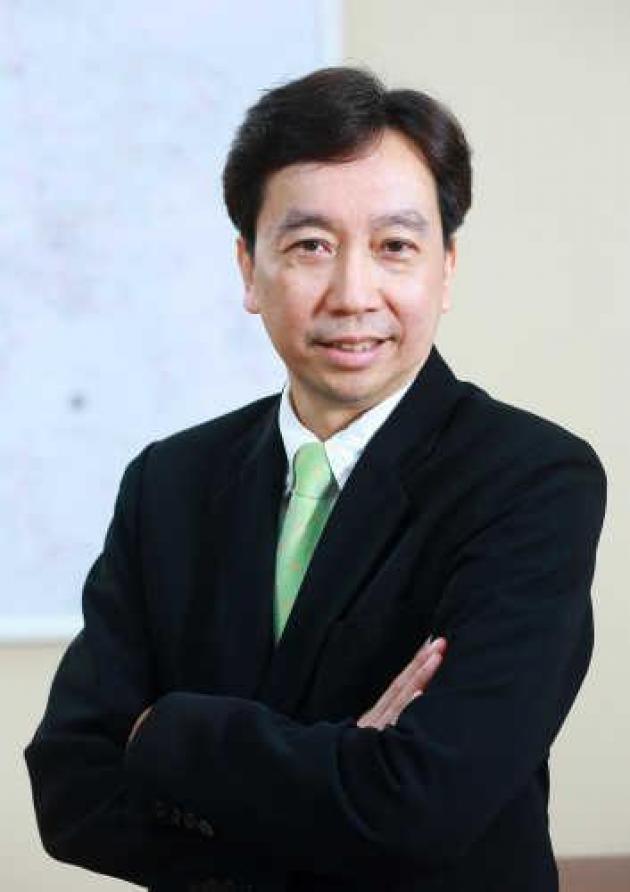
Chanin Chaonirattisai, new president of Electricity Generating Co.
ELECTRICITY Generating’s new president, Chanin Chaonirattisai, has brought forward the power company’s goal of achieving a Bt10-billion yearly operating profit to 2017, two years earlier than the target announced by his predecessor just a year ago.
At his first media conference since assuming the post on October 1, Chanin yesterday said he was confident the new target was attainable, since it could almost be achieved by the projects that the company already had on hand.
The listed company, commonly known as Egco, reported a net profit of Bt7.667 billion for last year.
Chanin said the company’s profit before extraordinary items this year was not expected to be lower than last year’s level. For the first nine months of 2015, the company reported an operating profit of Bt6.561 billion, before the effects of foreign exchange and deferred tax.
Like most other Thai power companies, Egco is looking out for future growth opportunities from overseas investment, as electricity demand growth in Thailand is projected to expand by just 2.68 per cent per annum during the next 15 years.
“We will focus more on overseas investment, especially in the countries where the company has a strong presence, such as the Philippines and Laos, as well as Indonesia and Australia. We will also consider investment opportunities in other Asean countries, such as Myanmar, Vietnam and Malaysia, and we aim to increase the company’s revenues from overseas investment from the current 37 per cent to 50 per cent by 2020,”he explained.
Chanin stressed that Egco was, however, also well-prepared to capture domestic opportunity when it arrived.
The company is conducting an environmental-impact-assessment study for a US$2-billion (Bt71.4 billion) project to expand its coal-fired BLCP power plant at the Map Ta Phut Industrial Estate, Rayong, by 1,000 megawatts.
He urged the government to approve the BLCP expansion project, since its electricity tariff would be much lower than for new gas-fired power-plant projects that had to run on imported liquefied natural gas.
“Even with Krabi and Thepha [two coal-fired power projects in the South] commencing, if the government sees the need for fuel diversification [from natural gas], [it should allow BLCP to expand] since it would also help bring down the country’s electricity tariff,” he told the press conference.
The electricity cost of the proposed BLCP coal-fired power plant, plus an availability payment of Bt0.50 per kilowatt hour, would still be lower than Bt4.23 per kilowatt-hour tariff that a gas-fired IPP (independent power producer) project would charge, he added. Chanin said Egco was studying potential investment opportunities around six projects, both domestic and within the region, such as in Laos, Myanmar, Indonesia and Vietnam, with some of the study results expected early next year.
“We might also have to divest some projects that have poor investment returns,” said the president.
Egco Group runs 23 operating power plants with total equity contracted capacity of 3,795MW in five Asia-Pacific countries: Thailand, Laos, the Philippines, Indonesia and Australia. It has another seven projects under construction and development, with a combined equity contracted capacity of 1,721MW.
The company’s power plants generate electricity using several fuel sources – natural gas, coal, biomass, waste, hydro, solar, wind and geothermal.
Source: http://www.nationmultimedia.com/business/Egco-chief-accelerates-Bt10-bn-goal-30273730.html
